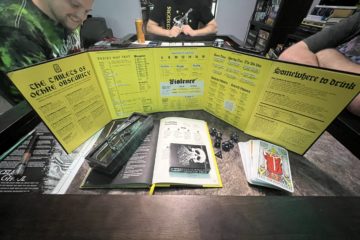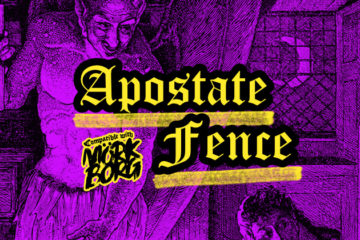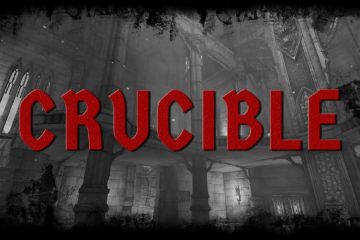Crucible Dev Blog: Pacing
It’s been a few since we’ve unveiled Crucible, but it’s time again to dive into discussing it, since our first public play test is hopefully coming in November!
Hurt Me Plenty
One of the biggest things for us to get right when designing Crucible was the frequency and fervency at which players took their turns and got to participate. The core of the game is built on teamwork, and that feeling of camaraderie becomes really reinforced when players get to actively make an impact on the match. So originally we wanted the game to be played in real time with each match taking around 40 minutes to play. Far too many times at a conventions, friends tables, or even our own games sometimes turn into lethargic back-and-forth slogs of waiting for people to make up their mind about their turn. We didn’t want that for Crucible. We wanted the second your turn ends for you to begin observing the arena and the other combatants, and planning your next move. The same type of energy you get from playing in timed tournament modules for D&D, or the tension of watching a good eSports match.
Our overall pacing goals look something like this:
- Constant engagement between players
- A play experience that rests right on the precipice of feeling the need to stand up at the table far more often than it does allow you to settle into your seat.
- Just enough moving parts to keep the game dynamic, but without disrupting its fluidity and ease of play.
Optimally, we’d prefer the game inspire players to never sit down for the duration of the match! If that sounds marginally unnerving to you, that’s intentional.
Choice Breeds Chaos
The problem here is, this can be too chaotic. In a tournament module for a tabletop RPG, you generally know when to go and when to wait for your turn because initiative is static. The more open, team-based initiative of Crucible means that not every round is ordered the same, and so it can be easy to lose track of things. Not only that, but if a player is hesitant to act on their turn it could be that they’re genuinely indecisive, but they could also be doing it intentionally in order to burn down the clock. This was disheartening and so we looked to having matches simply last a static # of rounds based on arena, player count, and game mode. This really took the wind out of our sails during play testing as the whole vibe of the game seemed to lose part of what made it unique.
Luckily, after a few iterations of play testing and with the aid of an Overlord we think we may have the answers to these problems.
- Activation Markers – Each player will have a physical token that indicates whether they’ve acted this round, visually it needs to be immediately recognizable. We are currently working on some 3D-printed prototypes that’s a simple brightly team-colored skull token. Team color on one side and grey on the other.
- Turn Implications – Players who have not begun to act within 30 seconds of their turn starting will forfeit that turn, or take 2d6 unmitigated damage due to the physical and psychological pressures of participating in the arena. This is a 3-strikes rule, and on the third strike the player’s cultist is killed outright counting as a frag for the opposing team(s).
We’re aware some of what we’re trying to accomplish here would require the use of an Overlord, but we also don’t see an issue with well-intended players to self-regulate. This is a game after all, and as long as everyone is having fun, that’s really all that matters.
Oh, what’s an overlord you ask? They’re sort of a mix between a referee and a shout caster. Here’s the text from the current iteration of the rules:
An Overlord is not required for Crucible, however they can be necessary depending on how competitive you’d like to make the game. Most matches are self-regulated with relative ease, but if you really want to make sure people are keeping the pace and balance of the game, an Overlord can be a fun addition. Not only helping to facilitate time tracking and round flow, but Overlords can also offer color commentary and play-by-plays as the action unfolds. Demonic announcer voice completely optional of course.
~ Crucible Alpha Test v.04 Core Rules, Ch. 1
Next Up: Pickups, Pentagrams, and Pulse Rifles
That’s it for this installment, next time we will cover itemization, cultists loadouts, and finding the right balance of choice within the Shadow Engine’s action economy. This will also include the implications of making weapon choices in the high pressure stakes of the arena. Until next time, keep ripping and tearing!



0 Comments